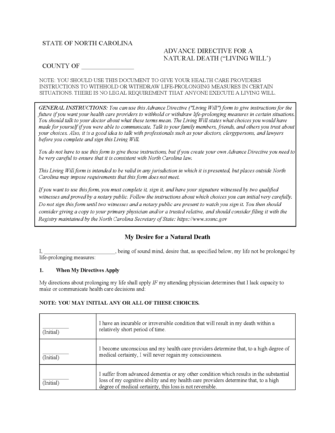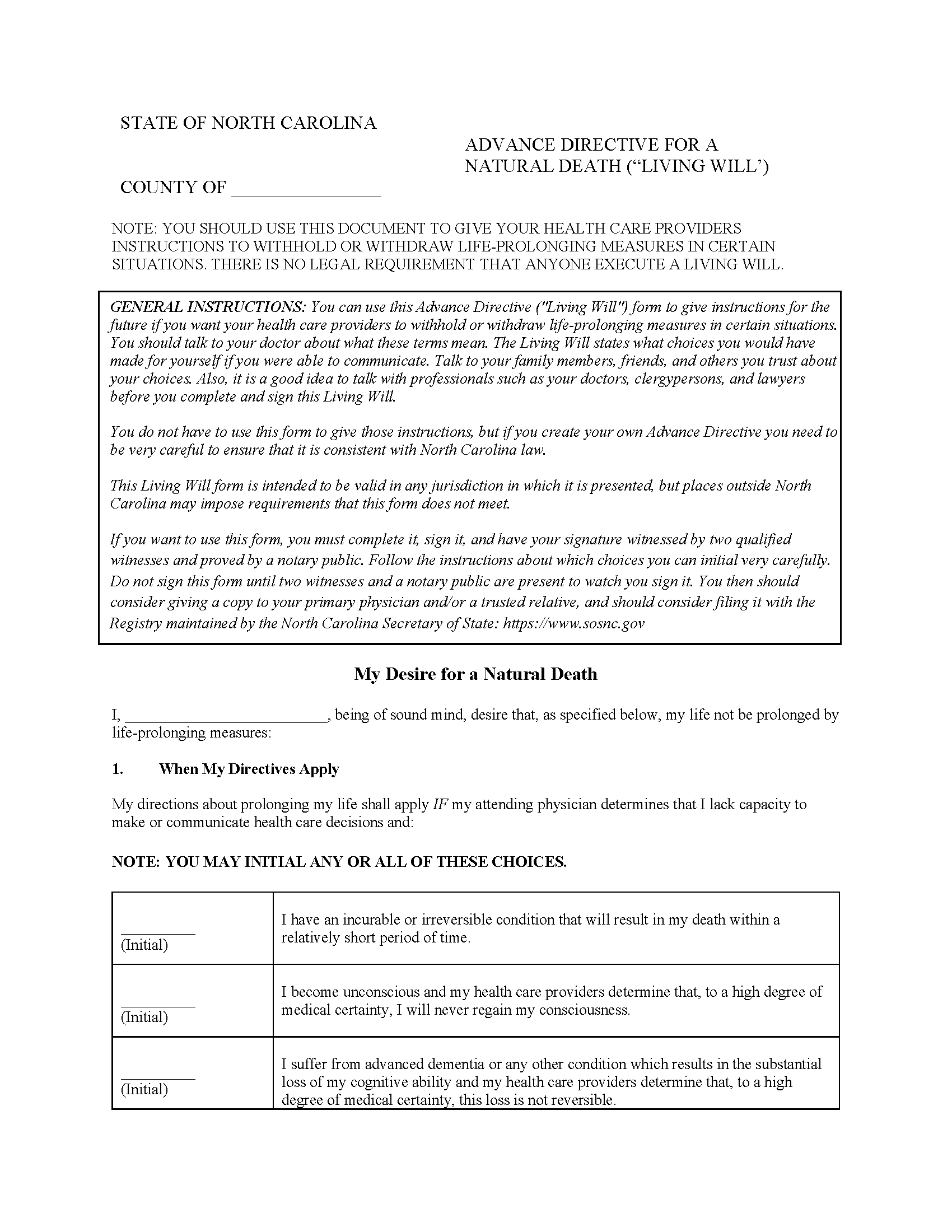- Laws – Chapter 90, Article 23 (Right to Natural Death; Brain Death)
- Signing Requirements – Two witnesses and notary public[1]
- Statutory Form – § 90-321(d1)
Statutory Definition
Declaration. – Any signed, witnessed, dated, and proved document meeting the requirements of subsection (c) of this section.[2]

